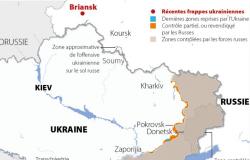The devastating floods of October 29 in Spain could lead to a 0.2 point drop in gross domestic product (GDP) growth in the fourth quarter, the Governor of the Bank of Spain, José Luis Escrivá, announced on Wednesday.
This impact, estimated on the basis of comparable economic analyses, notably those of the passage of Hurricane Katrina in the United States in 2005, should also generate “an increase of 0.15 points in inflation,” Mr. Escrivá during a press conference in Madrid.
These forecasts could slow down the economic dynamics of the country, whose GDP recorded growth of 0.8% in the third quarter. The government, however, maintains its annual growth target at 2.7%, an estimate which has not yet been revised since this disaster which caused the death of at least 227 people and ravaged nearly 80 municipalities around Valencia, a region key to the industry.
The towns affected by the floods represent “around 2% of the Spanish economy”, said Mr. Escrivá, adding that the impact seems to be mainly concentrated on industrial activity, despite the presence of numerous “dormitory towns” in the region, home to nearly a million people and 150,000 outstanding mortgages.
“The profile” of the disaster is very similar to that of Katrina, explained Mr. Escrivá, specifying that it had not however reached the “levels” of the most serious hurricane ever suffered by the United States , where he killed more than 1,800 people.
Using econometric techniques and historical data, the Bank of Spain estimated the negative impact of the floods at around two-tenths of a point of quarterly GDP, the governor explained.






